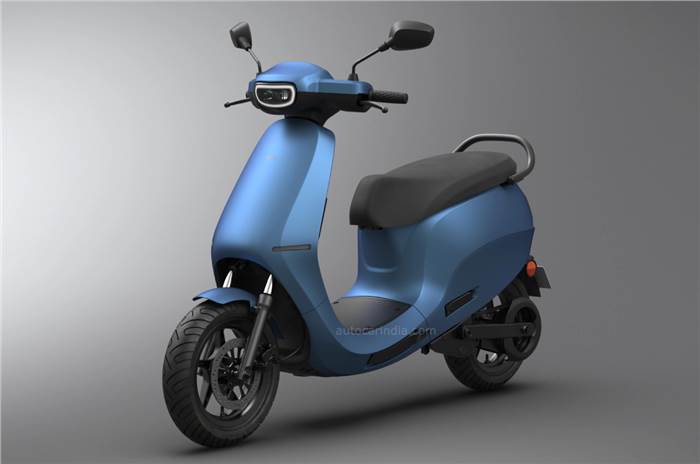
In recent years, electric scooter sharing programs have become increasingly popular in major cities around the world. This innovative transportation solution offers a convenient and eco-friendly way for residents and tourists to navigate urban areas. With the rise in demand for alternative modes of transportation, electric scooters have quickly gained popularity as a practical and efficient means of getting around town. Let's explore the growth of electric scooter (it is also known as “elektrische step” in the dutch language) sharing programs and their impact on urban mobility.
The Benefits of Electric Scooter Sharing Programs
Convenience
- Electric scooters provide a convenient and flexible mode of transportation for short trips within the city.
- Users can easily locate and unlock scooters using a mobile app, making them accessible for on-the-go travel.
- Riders can drop off the scooters at designated locations, eliminating the need to find parking spots or return them to specific stations.
Environmentally Friendly
- Electric scooters produce zero emissions, making them an environmentally friendly transportation option that helps reduce air pollution in urban areas.
- By choosing electric scooters over traditional gas-powered vehicles, users can contribute to a cleaner and greener city.
Cost-Effective
- Electric scooter sharing programs offer an affordable transportation option for users, with pay-as-you-go pricing or subscription-based plans.
- Riding electric scooters can be more cost-effective than owning a car or paying for rideshare services for short trips.
The Impact of Electric Scooter Sharing Programs on Urban Mobility
Reduced Traffic Congestion
- Electric scooters help alleviate traffic congestion in major cities by providing an alternative mode of transportation for short-distance trips.
- By reducing the number of cars on the road, electric scooters help improve traffic flow and make urban areas more accessible for everyone.
Last-Mile Connectivity
- Electric scooters fill the gap in transportation by providing a convenient last-mile solution for commuters traveling to and from public transit stations.
- Users can easily transition from buses or trains to electric scooters to complete their journeys, reducing reliance on personal vehicles for short distances.
Promoting Health and Wellness
- Using electric scooters as a mode of transportation promotes physical activity and outdoor exercise, contributing to improved health and wellness for riders.
- Riding scooters can help users incorporate more physical activity into their daily routines while exploring the city and enjoying the fresh air.
Challenges and Regulations
Safety Concerns
- Electric scooter sharing programs have raised safety concerns related to accidents, injuries, and conflicts with pedestrians and other road users.
- Ensuring that riders follow traffic laws, wear helmets, and operate scooters responsibly is crucial for minimizing risks and promoting safe usage.
Regulatory Framework
- Many cities have implemented regulations and policies to manage the operation of electric scooter sharing programs and address issues such as parking, speed limits, and user behavior.
- Collaboration between municipalities, scooter companies, and stakeholders is essential for developing a sustainable regulatory framework that balances innovation with public safety and urban mobility needs.
Accessibility and Equity
- Ensuring equal access to electric scooter sharing programs for all residents, including those with disabilities or limited mobility, is a challenge that requires solutions such as accessible scooters, inclusive pricing, and community outreach initiatives.
- Promoting equity in transportation options and addressing barriers to participation are essential for creating a more inclusive and diverse urban mobility landscape.
The Future of Electric Scooter Sharing Programs
Technological Advancements
- Ongoing technological advancements in electric scooters, battery technology, and connectivity are driving innovation in shared mobility solutions.
- Features such as GPS tracking, remote diagnostics, and smart charging systems improve the efficiency, safety, and user experience of electric scooter sharing programs.
Expansion and Integration
- Electric scooter sharing programs are expanding to new cities and regions worldwide, providing residents and visitors with more options for sustainable and convenient transportation.
- Integration with existing public transit systems, bike lanes, and urban infrastructure is key to enhancing the connectivity and effectiveness of electric scooters as part of the larger transportation network.
Sustainability and Collaboration
- Ensuring the sustainability of electric scooter sharing programs requires collaboration between governments, scooter operators, users, and community stakeholders to address environmental, social, and economic impacts.
- Promoting a culture of shared responsibility, transparency, and innovation can help build a more sustainable and inclusive urban mobility ecosystem that benefits everyone.
As electric scooter sharing programs continue to grow and evolve, they are reshaping urban transportation and offering a glimpse into the future of sustainable mobility in major cities. By leveraging technology, promoting safety and accessibility, and fostering collaboration, electric scooters have the potential to revolutionize how people move around urban areas and contribute to a greener and more connected world.